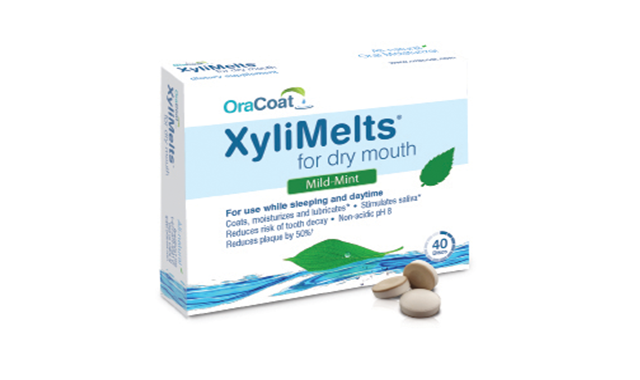How to find relief from xerostomia and reduce caries
One dentist’s recommendation for treating this desiccating condition.

Occasional dry mouth isn’t uncommon; however, if a patient constantly experiences “cottonmouth,” he or she may seek medical and/or dental help.
Medically known as xerostomia, this condition occurs when there’s not enough saliva in the mouth.
“I’d say about 10 to 15 percent of my patients have xerostomia. Not all of them are aware of it or really think about it,” says Kim Miller, DDS, who has been practicing independently in Cary, N.C., for more than 23 years. “But, it seems to be disproportionately women, especially over age 50, who are taking medications.
“We may notice signs of xerostomia before the patient does and routinely ask if they are taking any medications that may cause this,” Dr. Miller continues. “Other than being uncomfortable, if a patient’s mouth is dry, we worry about a higher caries rate as well as recurrent carries around restorations. In aging patients who have gum loss and recession, xerostomia makes their teeth more susceptible to root caries, which are devastating and really difficult to treat. Therefore, prevention is always more cost-effective. We’re trying to help people avoid dentistry.”
Related reading: Unlocking the key to stabilized stannous flouride toothpaste
Dr. Miller says she first learned of XyliMelts®, oral adhering discs that stick to your teeth or gums to help relieve persistent dry mouth, at an American Dental Association meeting several years ago. XyliMelts are made with a sugar substitute, xylitol. This naturally sweet carbohydrate found in raspberries, corn, oats and other plants helps to stimulate saliva flow. The discs slowly release 550 mg of xylitol over time-meaning hours of dry mouth relief as they coat, lubricate and increase saliva flow, especially while sleeping when dry mouth is at its worst.
“We have samples available that we hand out regularly,” Dr. Miller says. “We also tell patients where they can purchase XyliMelts, such as local drug stores as well as Amazon.”

Dr. Miller says the response she has been getting from her patients who have used these is “actually very good. Patients tend to continue using them. And they’re really easy to use-elderly patients with limited dexterity also seem to do fine.”
In fact, Dr. Miller takes these herself. “I started using XyliMelts about three or four years ago. I’ll use one just a few times a month. I like the mint one because I think it stimulates the saliva a little bit better and I like the fresh feeling. I usually take one disc at a time. I think the directions say you can use one or two, but I find that one seems to work well.”
“And the nice thing is they’re safe,” she adds. “There’s really not another product on the market I’m aware of that you can place in your mouth at night and get a little bit of relief. They tend to last two to four hours during the day and longer at night. Other products are usually sprays or gels that just don’t last, and drinking water really isn’t a long-term solution.”
Trending: How to invest in the right technology for your practice
Clinical research on XyliMelts has been limited until recently; however, Dr. Miller relies on anecdotal evidence.
“I feel confident in having my patients use themÂÂ-and the acceptance is really good,” she says. “One of the things that sets this product apart is the longevity of symptom relief, and they are really easy to place properly.”
“If the patient and the provider are aware of xerostomia, it will help in the appropriate management,” she adds. “If we can first make the patient more conscious of how to modify their diet, improve oral hygiene and use fluorides, the XyliMelts can then help manage dry mouth and make things more comfortable. If we can help patients avoid discomfort and preserve their teeth, we’ve met our primary goal in healthcare, as dental healthcare providers.”

ACTIVA BioACTIVE Bulk Flow Marks Pulpdent’s First Major Product Release in 4 Years
December 12th 2024Next-generation bulk-fill dental restorative raises the standard of care for bulk-fill procedures by providing natural remineralization support, while also overcoming current bulk-fill limitations.